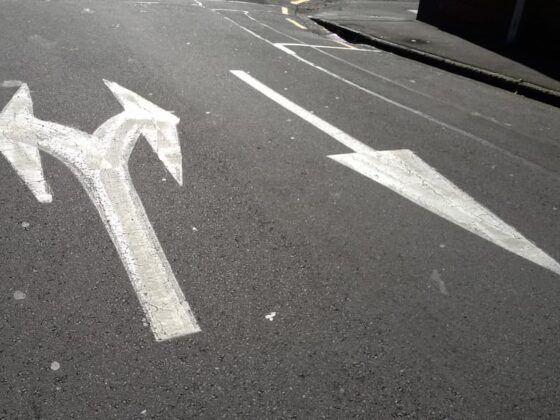As reported in an earlier article published by us on 9 April 2020, the Judiciary on 2 April 2020 issued a Guidance Note, effective 3 April 2020 (“Phase 1”), regarding the use of remote hearings as a means to deal with some pending civil litigation matters in the High Court. We have already written about the subject in our previous article ‘Remote Hearings for Civil Proceedings: How Will the Embrace of Technology Affect Hong Kong’s Legal System?’.
At the time of issuing Phase 1, which was in response to the Court’s closure in response to the outbreak of the COVID-19 virus in Hong Kong, the Judiciary made it clear that Phase 1 was subject to amendment and/or further guidance being issued.
The Judiciary has recently issued a second guidance note concerning remote hearings in civil proceedings – entitled ‘Guidance Note For Remote Hearings For Civil Business In The Civil Courts (Phase 2: Expanded Video-Conferencing Facilities and Telephone)’) (“Phase 2”) – effective as of 15 June 2020.
Initial steps: Phase 1
Under Phase 1, the question of whether to conduct a remote hearing using the Court’s video-conferencing facilities (“VCF”) was for the Court alone to initiate (with the Court not entertaining applications from parties to use VCF). The types of matters deemed suitable for remote hearings were also fairly limited – essentially, interlocutory matters where the Court believed focused oral submissions could be concluded within 2 hours, with trials specifically excluded.
Expanded use of VCF under Phase 2
Phase 2 refers to the increased availability of the Court’s VCF and provides for its expanded use for civil business across many courts, including the Court of Appeal, High Court, District Court, Family Court and the Competition Tribunal.
In addition to interlocutory applications, appeals and final hearings ordinarily dealt with on written evidence (i.e. without live oral evidence), the Courts may now also consider use of VCF for some civil trials or parts of such trial e.g. for taking live evidence from a witness outside Hong Kong.
All civil appeals and interlocutory applications in the Court of Appeal are now considered suitable for remote hearings provided that focused oral submissions can be concluded within 1 day.
Who determines whether remote hearings are appropriate?
Judges and Judicial Officers will continue to consider which matters might be suitable for disposal by remote hearing but – in contrast to the position under Phase 1 – the parties may now, under Phase 2, make their own applications for remote hearings and the use of VCF.
What factors will determine whether remote hearings are appropriate?
In making the case management decision as to which hearings will be dealt with remotely, the Court will take onto account the views of the parties, the availability of VCF equipment, the subject matter of the proceedings (or relevant part of the proceedings) and all other material circumstances including promotion of fair and efficient disposal of proceedings, avoidance/reduction of delay and/or costs savings.
Additional factors may include:
- (i) the importance/nature of the issues to be determined;
- (ii) whether there is any urgency or if a later hearing would/might cause significant disadvantage to the parties;
- (iii) whether the parties are legally represented;
- (iv) the ability of the parties to engage in remote proceedings meaningfully;
- (v) whether evidence is to be heard (and if so the nature of such evidence);
- (vi) the proposed length of the hearing; and
- (vii) whether there are other alternatives consistent with public health concerns.
Technical specifications
Phase 1 mandated that remote hearings would require technology/equipment compatible with the Court’s VCF and which met the operational requirements of Court hearings – but provided no guidance on the applicable technical specifications to be met.
Along with Phase 2, the Judiciary has in June 2020 published its ‘Technical Specifications of the Judiciary’s video conferencing facilities for remote hearings for civil business’. These identify the types of hardware and software needed to participate in remote hearings, including videoconferencing units, laptop computers, display units, cameras, speakers, and microphones.
Telephone hearings
Phase 2 also expands the use of telephone hearings. The Court can order a telephone hearing of its own motion, it being a case management decision within the discretion of the Judge or Master concerned. Appendix B to Phase 2 provides standard directions for telephone hearings.
For hearings before Masters, at present this is likely to be limited to the ‘3-minute’ list dealing with routine directions.
Recording of hearings
Remote hearings – whether conducted by VCF or by telephone – will normally be recorded by the Court’s enhanced digital audio recording and transcription services. Recording of the hearing, whether physically in the Court room or at any remote location, is prohibited.
Court Proceedings (Electronic Technology) Bill
In the meantime, the Court Proceedings (Electronic Technology) Bill – gazetted on 27 December 2019 of the Court Proceedings (Electronic Technology) Bill and which received its first reading on 8 January 2020 – is due to have its second and third readings in July 2020. The bill seeks to introduce electronic filing of Court documents. It also provides that the Chief Justice may specify by subsidiary legislation or include in practice directions detailed Court and operational procedures for the use of electronic means to enable the judiciary to adapt its practices/procedures to take into account rapid technological developments.
Welcome development
Phase 2 (as with Phase 1) is a welcome development. Hong Kong has lagged behind many other jurisdictions in terms of embracing technology in the Courts. The COVID-19 pandemic and recent extended period of closure of all Courts in Hong Kong as a result has highlighted the need for a modern and flexible approach.
Given the disruption caused by the extended period of closure of all Courts in Hong Kong as a COVID-19, the passing of the bill has assumed a greater urgency so that the Courts will be better equipped and placed to respond to similar situations in the future. Certainly, many law firms and legal practitioners will welcome such development.
Our team of solicitors at Hugill & Ip has extensive experience in dealing with civil litigation matters in Hong Kong and cross-border – so kindly get in touch with to find out how we can help.
This article is for information purposes only. Its contents do not constitute legal advice and readers should not regard this article as a substitute for detailed advice in individual instances.




